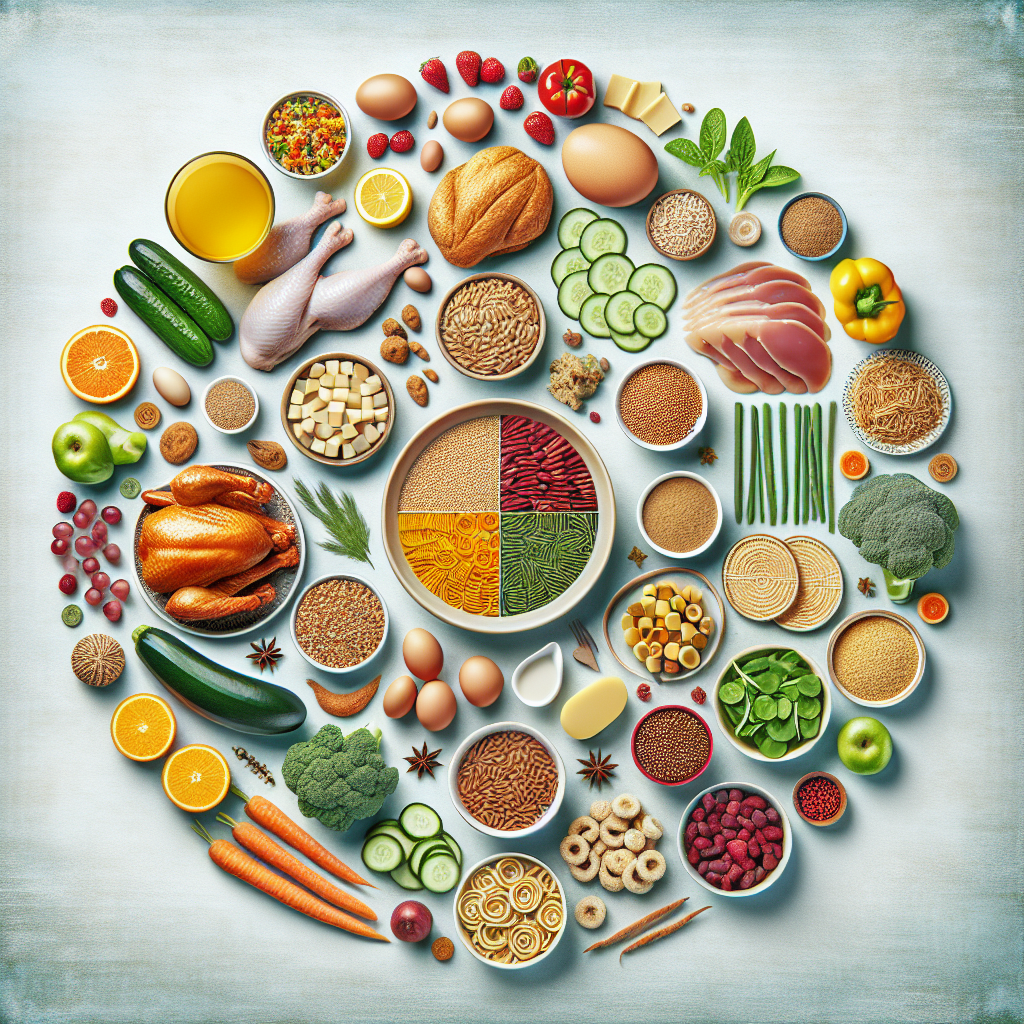Have you ever wondered if hybrid chickens have specific feeding or nutritional needs? Well, you’re in luck! In this article, we will explore the intriguing world of hybrid chickens and delve into whether or not they require any special dietary considerations. Whether you’re a seasoned chicken enthusiast or just curious about these unique feathered friends, this article will provide you with all the information you need to keep your hybrid chickens healthy and happy. So grab a cup of tea, sit back, and let’s discover the wonderful world of hybrid chicken nutrition together!
Feeding and Nutritional Needs for Hybrid Chickens
Importance of Proper Nutrition for Hybrid Chickens
Proper nutrition is crucial for the overall health and well-being of hybrid chickens. These chickens are specifically bred for their high productivity and can provide a significant amount of meat and eggs. In order for them to reach their full potential, it is essential to provide them with a balanced diet that meets their specific nutritional needs.
A proper diet ensures that hybrid chickens have the energy and nutrients required to support their growth, reproductive functions, and overall health. It also plays a crucial role in the prevention of diseases and the optimization of their productive capabilities.
Factors to Consider in Feeding Hybrid Chickens
- Age:
The nutritional requirements of hybrid chickens vary depending on their age. Young chicks require a diet that is high in protein to support their rapid growth and development. As they mature, their dietary needs change, and they require a more balanced diet that meets their specific requirements for energy and essential nutrients.
- Production Stage:
Hybrid chickens go through different production stages, such as growing, laying eggs, and breeding. Each stage has its own specific nutritional requirements. For example, during the laying stage, hens require additional nutrients to support the production of eggs.
- Breed and Body Size:
Different hybrid chicken breeds have different nutritional needs. Some breeds may require a higher protein content in their diet, while others may have different requirements for energy or specific nutrients. Additionally, the body size of the chicken can also affect its nutritional needs.
- Environment:
The environment in which hybrid chickens are raised can also impact their nutritional needs. Factors such as temperature, humidity, and stocking density can affect their metabolism and nutrient requirements.
Essential Nutrients for Hybrid Chickens
- Proteins:
Proteins are essential for hybrid chickens as they play a vital role in growth, muscle development, and egg production. The diet should contain a high-quality source of protein, such as soybean meal or fish meal, to meet the protein requirements of the chickens.
- Carbohydrates:
Carbohydrates provide the necessary energy for hybrid chickens to carry out their daily activities. Grains like corn, wheat, and barley are commonly used as a source of carbohydrates in the diet.
- Fats:
Fats are a concentrated source of energy and are necessary for the absorption of fat-soluble vitamins. Including a small amount of fats such as vegetable oils in the diet can help meet the energy requirements of hybrid chickens.
- Vitamins and Minerals:
Vitamins and minerals are essential for the overall health and functioning of hybrid chickens. They play a crucial role in bone development, immune function, and eggshell quality. A balanced diet should contain an adequate amount of vitamins and minerals, which can be provided through green leafy vegetables, grains, and commercial feed supplements.
- Water:
Water is often overlooked but is one of the most important nutrients for hybrid chickens. It is essential for digestion, nutrient absorption, temperature regulation, and overall body functions. Fresh and clean water should always be available to the chickens at all times.
Feeding Practices for Hybrid Chickens
- Formulating a Balanced Diet:
To ensure proper nutrition, it is important to formulate a balanced diet that meets the specific nutritional requirements of hybrid chickens. This can be achieved by consulting a poultry nutritionist or using commercially available feed that is specifically formulated for hybrid chickens.
- Offer a Variety of Feeds:
Offering a variety of feeds helps ensure that the chickens receive a wide range of nutrients. Including different grains, vegetables, and commercially available feeds in their diet can help provide a balanced and diverse nutrient profile.
- Feeding Frequency and Quantity:
The feeding frequency and quantity of hybrid chickens depend on their age and production stage. Young chicks may require frequent small meals, while adult chickens may only need to be fed once or twice a day. Monitoring their appetite and body condition can help determine the appropriate feeding frequency and quantity.
- Avoiding Overfeeding and Underfeeding:
Overfeeding or underfeeding hybrid chickens can lead to health issues and decreased productivity. It is important to provide them with the right amount of feed to meet their nutritional needs without causing excessive weight gain or nutrient deficiencies.
- Monitoring and Adjusting Feeding Programs:
Regular monitoring of the chickens’ body condition, weight, and egg production can help evaluate the effectiveness of the feeding program. Adjustments may be necessary to meet the changing nutritional needs of the chickens at different stages of their development.
Feeding Methods for Hybrid Chickens
- Free-Range Feeding:
Free-range feeding allows hybrid chickens to have access to a wide range of natural food sources such as insects, grass, and other vegetation. This method allows the chickens to exhibit their natural foraging behaviors and can contribute to a more varied diet.
- Complete Feed:
Complete feed is a commercially available feed that contains all the necessary nutrients in the correct proportions. This convenient feeding method ensures that hybrid chickens receive a balanced diet without the need for additional supplementation.
- Pellet Feeding:
Pellet feeding involves providing hybrid chickens with feed that has been processed into small, uniform pellets. This method can improve feed efficiency and reduce waste as chickens are unable to selectively eat specific ingredients.
- Mash Feeding:
Mash feeding involves providing hybrid chickens with a feed mixture that has been ground into a fine powder. This method allows the chickens to consume the feed in its natural form, but it can lead to increased feed wastage.
- Grain Feeding:
Grain feeding involves providing hybrid chickens with whole or cracked grains such as corn, wheat, or barley. This method can be cost-effective and provides the chickens with a natural feeding experience, but it may not meet all their nutritional needs and should be supplemented with additional nutrients.
Potential Challenges in Feeding Hybrid Chickens
- Competition for Feed:
In multi-bird environments, there can be competition for feed, especially during feeding time. Some chickens may dominate the feeding area and prevent others from accessing enough feed. This can lead to malnutrition and decreased productivity.
- Nutritional Deficiencies:
Improper feeding practices or an unbalanced diet can result in nutritional deficiencies in hybrid chickens. This can lead to health problems, reduced egg production, and decreased growth rates.
- Poultry Diseases:
Adequate nutrition plays a crucial role in supporting the immune system of hybrid chickens. A lack of proper nutrition can weaken their immune system and make them more susceptible to diseases such as respiratory infections, coccidiosis, or salmonella.
Conclusion
Feeding and providing proper nutrition for hybrid chickens is vital in order to optimize their growth, productivity, and overall health. Understanding the specific nutritional needs of hybrid chickens at different stages of their life cycle and implementing appropriate feeding practices can help ensure their well-being and maximize their potential as productive farm animals. By providing them with a balanced diet, offering a variety of feeds, and monitoring their feeding programs, you can support the overall health and well-being of your hybrid chickens, leading to healthier and more productive flocks.




